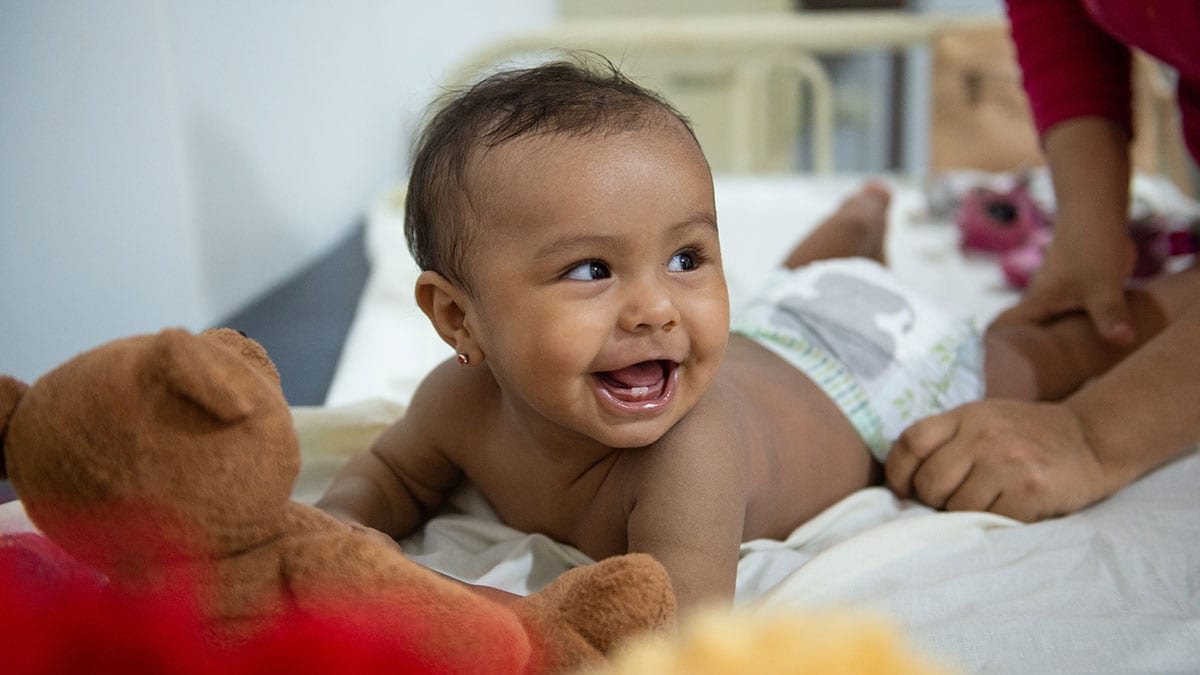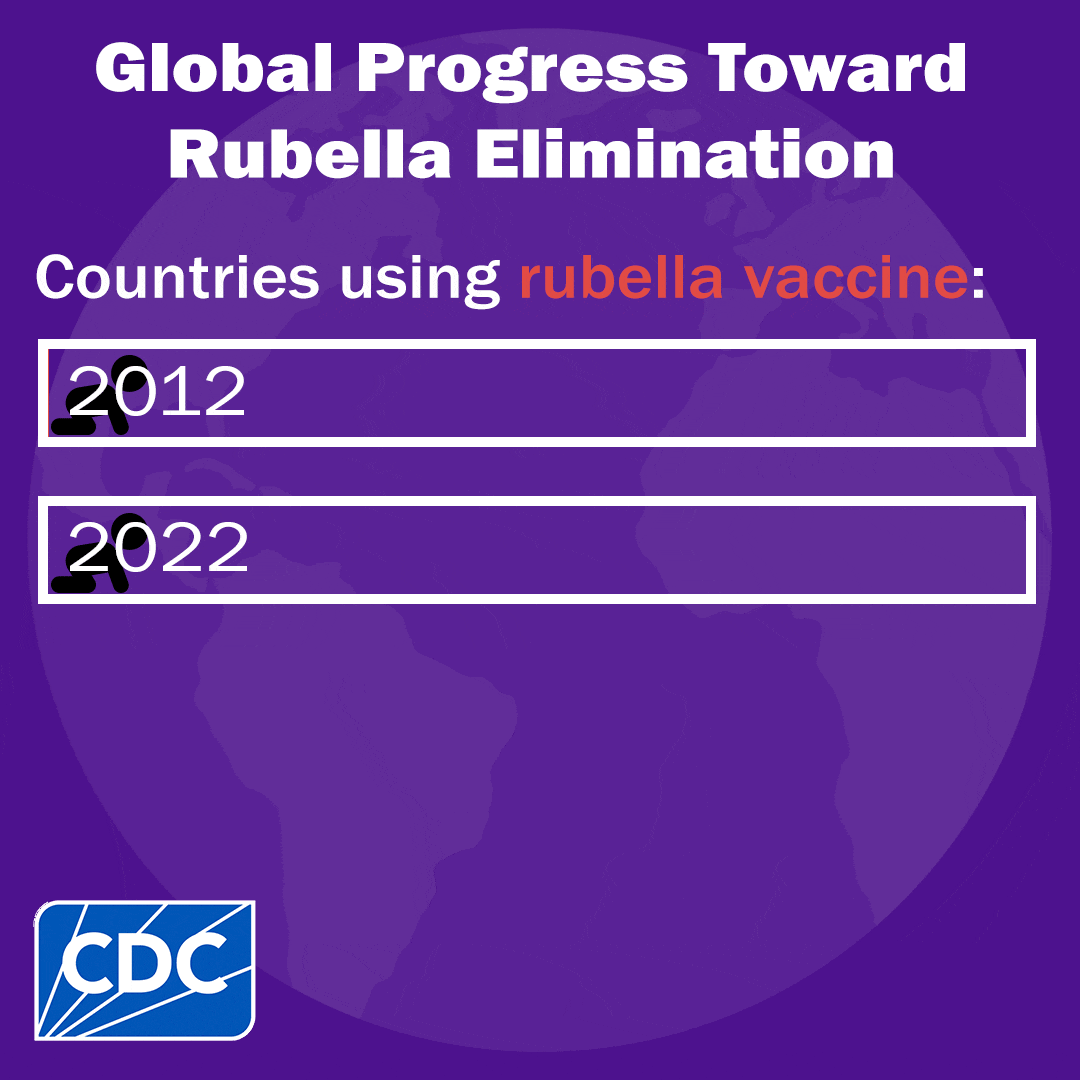At a glance
Rubella is a leading cause of vaccine-preventable birth defects. When a woman is infected with the rubella virus during pregnancy, particularly in the first trimester, the newborn can have birth defects, known as congenital rubella syndrome (CRS).

Impacts
Rubella can cause severe birth defects and death
Rubella infection creates mild symptoms in most children and adults but can cause serious health problems when it happens during pregnancy.
Rubella virus infection is a leading cause of vaccine-preventable birth defects, known as congenital rubella syndrome (CRS). Rubella infection during pregnancy can also lead to miscarriage (loss of the fetus within 20 weeks of conception) and stillbirth (death of the fetus after 20 weeks of pregnancy).
When a pregnant woman is infected with rubella in early pregnancy, she has up to a 90% chance of giving birth to a baby with CRS:
- CRS can cause hearing impairment, cataracts or glaucoma, heart defects, or developmental delays
- 33% of infants born with CRS die before their first birthday
- In 2019, an estimated 32,000 children were born with CRS
Prevention
Rubella is a preventable disease

The World Health Organization recommends that all countries include rubella vaccines in their national immunization programs.
Rubella vaccines are safe and effective and have been used for over 50 years. One dose can provide lifelong protection. In most countries, a combined measles and rubella vaccine is used.
Over half the world's countries have eliminated rubella. Most countries include rubella vaccines in their national immunization programs, but 19 countries have not introduced rubella vaccine. The majority of children born with CRS live in these countries.
Rubella vaccination is almost always done with measles vaccination.

